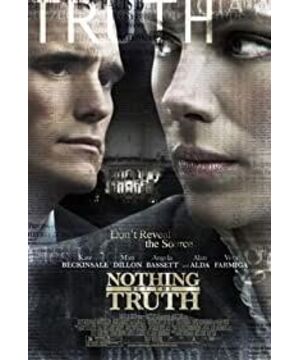I used to think that the Pentagon Documents case was the end of such a ridiculous case. After all, Ellsberg, the main character who leaked government secrets in that case, has been active in various university forums to tell his heroic deeds. ——I still remember that when I went to the First Amendment, some students asked why they didn’t prosecute him. The teacher said, maybe it is because of bad publicity. In fact, the government certainly sued Ellsberg at the time, but the case was dismissed by the judge after a long trial.
In the Pentagon document case, all the government wanted was to refuse to publish it, not to hold it accountable. Even so, the Supreme Court still said no. But perhaps, it was precisely because what the government did at that time was to take precautions before it happened, so it took the court's closed doors. Pre-restriction is the most suspected method of restricting speech, and it is the most vigilant of the courts. Or maybe it was because the surging anti-war wave was too strong, and the justices were forced to respond within a short period of time under the urging of the media. It is almost inconceivable that Justice Harlan’s minority opinion enumerates so many dates in detail to clarify how the Supreme Court is under tremendous pressure from the media and the public, which is probably rare among the Supreme Court’s judgments.
That is the best time, that is the worst time.
The Pentagon file case in 1971, Branzburg v. Hayes in 1972. But the difference is only one year. I have always wanted to figure out the reason for such a difference. Of course, it can be said that Justice White originally insisted on the need for higher standards for “pre-review”, and therefore no longer insisted on the subsequent punishment; it can also be said that the resignation of Justice Black and the appointment of Justice Powell directly led to the balance of the balance. tilt. So, 6-3, became 4-5.
With the passing of time, the Vietnam War has become synonymous with veterans only. The Supreme Court is not in the hands of conservatives for a day or two. In addition to looking forward to the wise president of the Democratic Party in "The White House", idealists have demonstrated their eloquence in the Supreme Court of "Boston Law."
Digress. I originally planned to talk about the movie, and then a bunch of irrelevant cases and things. But this case clearly has nothing to say, the truth is not as beautiful as the movie. The film is based on Judith Miller's events, terrorist attacks, al-Qaeda, the Iraq war...
and we all know the results of Miller after being detained for 85 days:
she revealed her source,
she testified in court, the
former vice president’s staff Long Lewis Libby was eventually found guilty.
View more about Nothing But the Truth reviews











